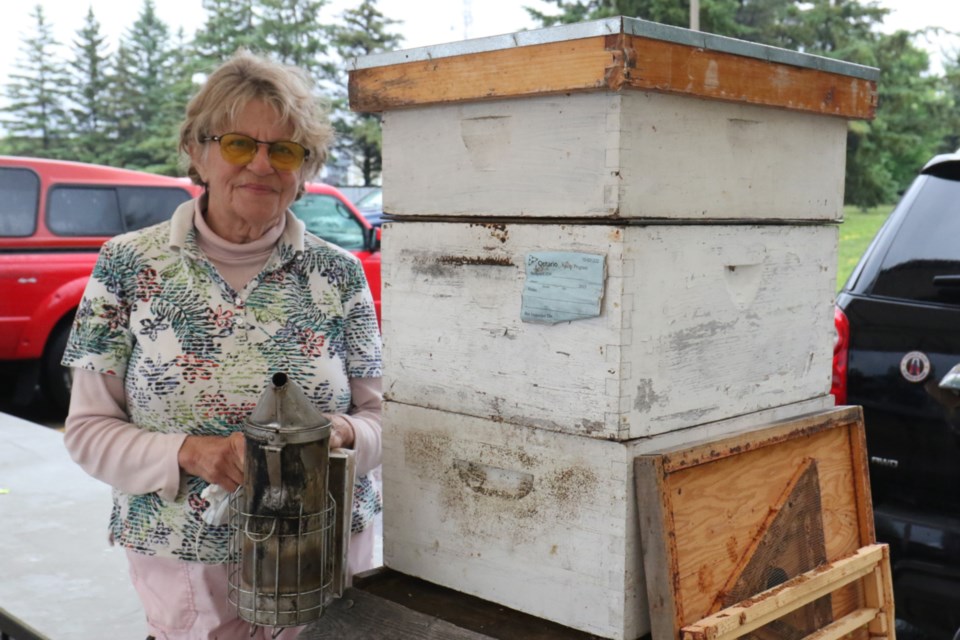Mary Eaton showed up at the Algoma Farmers’ Market - by special request, no less - to teach the public about beekeeping Saturday.
“They asked me to come today, because they wanted me to bring in the stuff so I could tell people that wanted to get into beekeeping how to do it,” Easton said.
The owner of Mary’s Bees and Crafts in Laird Township has been beekeeping and producing honey in the Algoma District since taking a pair of courses on beekeeping at Guelph University in the mid-90s.
Diabetes runs in Eaton’s family, and she says that diabetics can have a little bit of honey or maple syrup because it doesn’t attack the pancreas.
“I guess just because I like teaching other beekeepers how to get started. I like the honey - and because there’s diabetes in the family,” she said.
Eaton, who is a member of the Ontario Beekeepers’ Association, says Laird Township is a great place to produce honey.
“I think the honey is really good in my area because there’s so much natural stuff out there,” she said, “The bees bomb my neighbour’s pear tree, they love dandelions.”
“I had lots of apricots on my tree this year, and I know it’s because the bees pollinated. I’ve got lots of apples, and the bees pollinate those - they take the pollen as their protein, the nectar as their carbohydrates,” she continued. “In my garden, if I have squash or pumpkins I know they’ll be nice and big because the bees pollinated them well.”
Eaton says there wasn’t any problem selling honey from her 11-acre farm during the COVID-19 pandemic.
“I sold out all my honey. People came to the door - slow but sure, it all left,” said Eaton. “And now, I won’t be taking any honey out until September.”
According to Eaton, a lack of flowers on the maple trees this year - the flowers themselves contain ample amounts of nectar and pollen - has led to a shortage of honey.
“There weren’t any flowers on the maple trees this year, and I think it’s because we had a frost and a thaw, a frost and a thaw, and it must of killed the buds,” she said.
Eaton - who worked as an art teacher at Central Algoma Secondary School for three decades prior to her retirement - is keeping busy this summer by tending to her bees and her garden, as she awaits more favourable conditions for producing honey.
And she can still find the time every now and then to teach others about beekeeping.
“I’m a retired teacher, so I still enjoy teaching people things,” she said.
Eaton spoke to SooToday at length about beekeeping and the benefits of raw honey for an article that was published last year.
